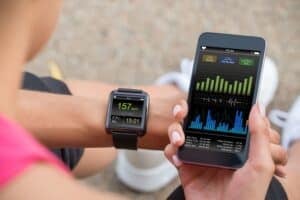The day the Orlando Pirates Soccer players learned how to make nutritious food.

The last place you might expect to find one of South Africa’s best soccer teams is in the kitchen, cooking up a storm.
But this was the case this week when the Vitality Healthy Food Studio sent out an invitation to one of the Orlando Pirates, for an informative evening on healthy eating in Sandton.
With head coach Milutin Sredojević’s strong emphasis on maintaining both a healthy bodies and focussed minds to ensure the best possible performance, the squad were put through their paces, learning not only about the importance of nutrition, but also how to prepare their own meals in an innovative team-building experience.
“All sportsmen know that good nutrition is key to getting the best out of your body. What our players put into their mouths each day fuels their performance, and we want to make sure they understand that, especially ahead of the new season. It’s important for them to know that they can’t out-exercise a bad diet,” Sredojević said.
“While exercising on a regular basis is one of the best things you can do for your health, it’s only part of the equation. Focusing on eating healthily will make a world of difference to your health and weight loss goals,” Terry Harris, Pirates’ head dietician, added.
There are clear associations between physical activity, diet and health, according to the World Health Organisation. Research has found that dietary risk factors and physical inactivity are responsible for the majority of global diseases.
If you want to make sure your diet compliments your fitness regimen, here are some key factors to bear in mind:
- 1. Opt for foods as close to their natural state as possible. Avoid overly processed foods with endless ingredients on the label.
- 2. Try to include a variety of foods in your diet. Ensure that you get a good mix of different beneficial nutrients.
- 3. Prepare your meals yourself so you know what’s in them. Many takeaway foods and ready-to-eat meals are notoriously high in kilojoules, salt and sugar.
- 4. Dine sensibly. Choose foods that are steamed, baked, roasted, poached or lightly sautéed or stir-fried. Avoid foods that have been deep fried.
- 5. Be mindful of your portion sizes. It’s easy to overestimate how much we can eat when we exercise – an average 60 kg female running for 30 minutes only burns around 370 kJ (around the equivalent of a medium banana).
- 6. Avoid overeating. Focus on your food when eating. Eat slowly and tune in to your body’s cues so you’ll know when you’re sufficiently satiated and it’s time to stop eating.
- 7. Plain water is your best bet at the gym (and everywhere else). If you have a sports drink by your side every time you visit the gym, you may be undoing all of your hard work. Sports drinks are filled with sugar and empty kilojoules – a standard 500ml bottle contains around seven teaspoons of sugar (more than half of the daily 12 teaspoon limit the World Health Organisation recommends).
- 8. Don’t forget about all of the other empty kilojoules you may be consuming outside the gym through sugary soft drinks or fruit juices. Just having one regular 330 ml can of soft drink ups your sugar intake by almost nine teaspoons of sugar. It’s best to cut these out completely but if you find plain water to be too bland, try infusing still or sparkling water with various fresh fruits, vegetables and herbs for flavour, or try different herbal teas to find ones you like.
- 9. Unhealthy snacking can add a significant amount of energy to your diet. Make smart snack choices by choosing fresh fruit, vegetable sticks, unsalted nuts and seeds, and plain yoghurt over unhealthy snacks such as crisps or sweets. 10. Foods high in salt or sugar do not always taste obviously salty or sweet. Get into the habit of reading labels on more processed foods to identify hidden salt and sugar.
Support Local Journalism
Add The Citizen as a Preferred Source on Google and follow us on Google News to see more of our trusted reporting in Google News and Top Stories.






